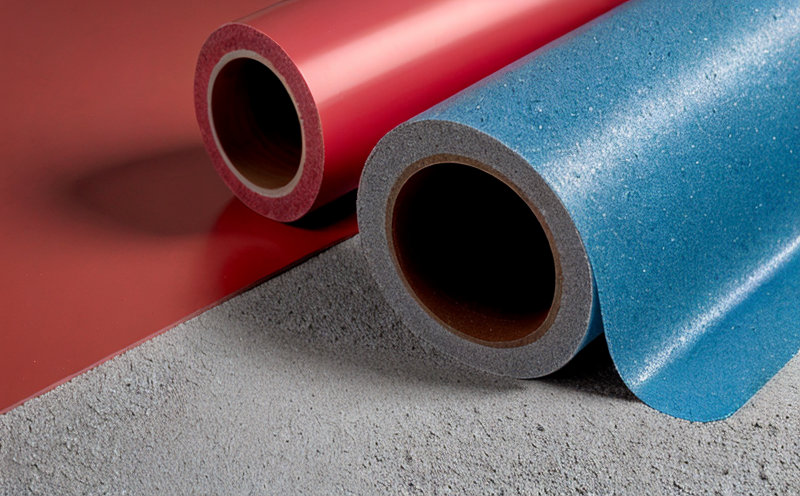EN 6034 High Temperature Fire Resistance of Joints
The EN 6034-1 standard is designed to evaluate the high temperature fire resistance properties of joints used in aerospace and aviation applications. This test is critical for ensuring that materials used in these sectors can withstand the extreme conditions encountered during a fire, which may include temperatures exceeding 950°C (1742°F). The integrity of such joints directly impacts safety and reliability of aircraft structures.
The test involves subjecting a joint to a high temperature environment over an extended period. The specimen is typically a composite or metal joint that replicates real-world conditions encountered in aerospace and aviation applications. This ensures that the material used can maintain its structural integrity, preventing catastrophic failure during extreme fire events.
For accurate testing, specimens are prepared following precise specifications detailed in EN 6034-1. The test setup includes a furnace capable of reaching temperatures up to 950°C (1742°F) and maintaining these for the duration of the test. A thermocouple is used to monitor temperature, ensuring accurate data collection.
The testing process involves placing the joint in the furnace under controlled conditions. The specimen is held at the specified temperature for a specific duration, typically 60 minutes or longer, depending on the material and expected performance. After this period, the joint's integrity is assessed to determine its ability to withstand high temperatures without compromising structural integrity.
The results of these tests are crucial for manufacturers in the aerospace and aviation industries as they ensure that materials used in critical joints can perform under extreme conditions. This testing helps prevent potential failures during emergencies such as fires on aircraft, which could lead to catastrophic consequences if not properly addressed.
| Parameter | Description |
|---|---|
| Furnace Temperature | 950°C (1742°F) |
| Test Duration | 60 minutes minimum, variable |
| Thermocouple Monitoring | To ensure temperature stability and accuracy during testing. |
The importance of this test cannot be overstated. In the aerospace and aviation industry, where safety is paramount, ensuring that joints can withstand high temperatures is essential. This test not only ensures compliance with international standards but also enhances product reliability and performance in real-world scenarios.
Understanding the implications of EN 6034-1 testing allows stakeholders to make informed decisions about material selection and joint design. By adhering to these rigorous tests, manufacturers can ensure that their products meet stringent safety requirements and contribute to overall aviation safety.
Scope and Methodology
- The test involves subjecting a joint specimen to high temperatures up to 950°C (1742°F).
- A thermocouple is used for temperature monitoring throughout the test duration.
- The specimen remains in the furnace at this temperature for the prescribed time, typically 60 minutes or longer.
- Post-test evaluation assesses the joint's integrity and structural performance post-exposure to high temperatures.
This methodology ensures that the testing process accurately reflects real-world conditions, providing reliable data on material performance under extreme fire conditions. Compliance with these procedures guarantees accurate results and supports informed decision-making by manufacturers and regulatory bodies.
Eurolab Advantages
At Eurolab, we provide comprehensive EN 6034-1 testing services tailored to the aerospace and aviation sectors. Our experienced team of technicians ensures that each test is conducted with precision and adheres strictly to international standards.
- Accurate Test Results: Utilizing state-of-the-art equipment, we deliver precise and reliable results, ensuring compliance with EN 6034-1.
- Expertise in Aerospace: Our team has extensive experience working with materials used in aerospace applications, allowing for accurate specimen preparation and testing.
- Comprehensive Reporting: We provide detailed reports that include test parameters, results, and recommendations to help manufacturers improve product performance.
- ISO/IEC 17025 Accreditation: Our laboratory is accredited to ISO/IEC 17025, ensuring the highest level of quality and reliability in our testing services.
With Eurolab, you can rely on accurate and consistent results that meet the stringent requirements of the aerospace and aviation industries. Our commitment to excellence ensures that your products are safe and reliable, meeting the highest standards for fire resistance.
International Acceptance and Recognition
- EN 6034-1 is recognized globally by regulatory bodies and industry stakeholders in the aerospace and aviation sectors.
- This standard ensures that materials used in joints can withstand high temperatures, enhancing safety during fire incidents.
- The test results are accepted by major international organizations such as the Federal Aviation Administration (FAA) and European Union Aviation Safety Agency (EASA).
- Manufacturers worldwide use EN 6034-1 to ensure compliance with global aviation standards and regulations.
The widespread acceptance of this standard reflects its importance in ensuring fire resistance of joints used in critical applications. By adhering to this test, manufacturers can demonstrate their commitment to safety and reliability, gaining trust from customers and regulatory bodies alike.





